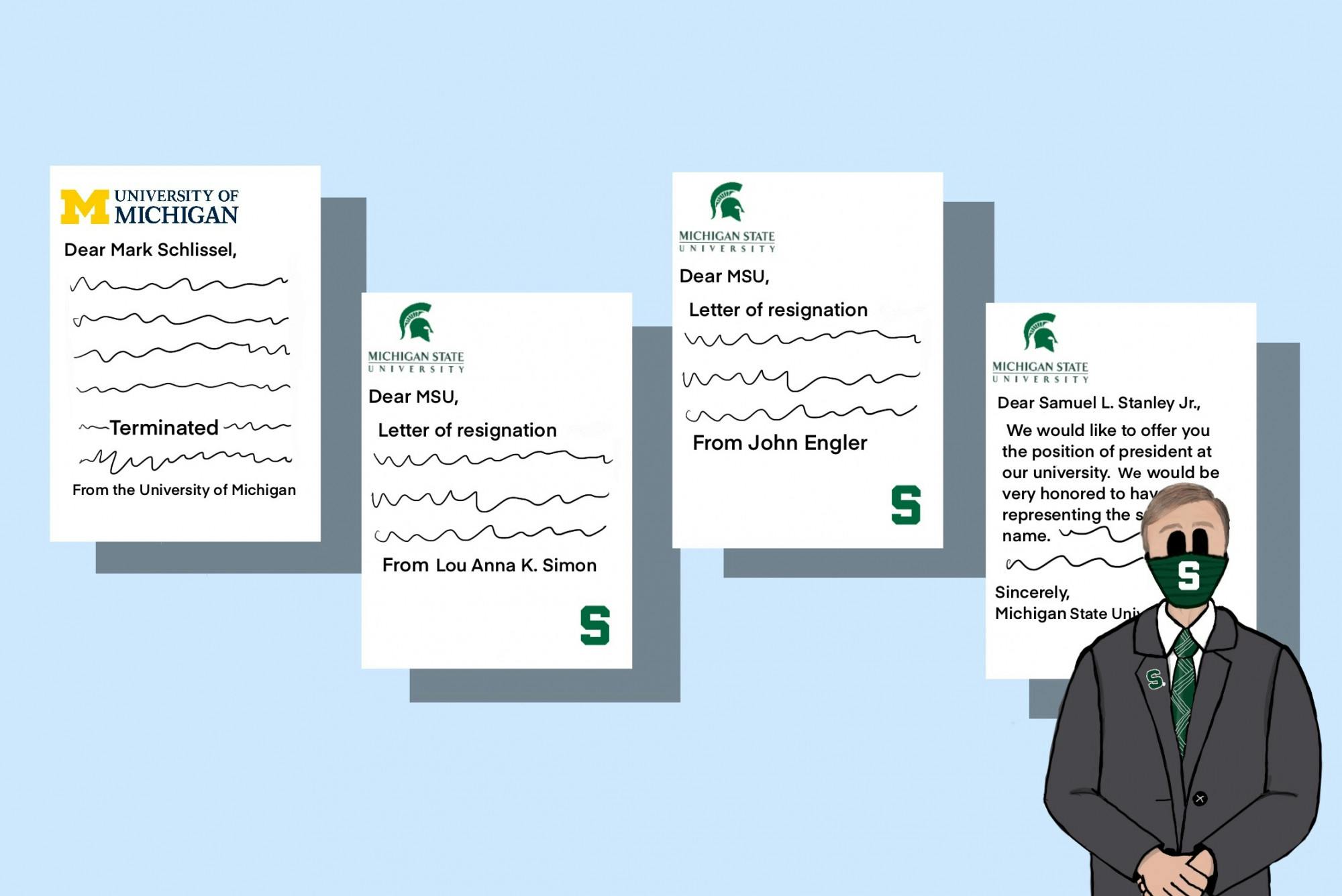On Jan. 15, the University of Michigan fired its president Mark Schlissel.
Just four days later, U-M agreed to a $490 million settlement with survivors of now late Michigan doctor Robert Anderson.

On Jan. 15, the University of Michigan fired its president Mark Schlissel.
Just four days later, U-M agreed to a $490 million settlement with survivors of now late Michigan doctor Robert Anderson.
One of the settlement attorneys Mick Grewal — who also represented one-third of the survivors of ex-MSU doctor Larry Nassar — said $460 million will be set aside for approximately 1,050 survivors.
An extra $30 million will be set aside for any survivors who come forward in the future.
Additionally, The U-M Regents terminated Schlissel on Jan. 15 following an investigation that found he was having a relationship with a subordinate.
In a letter to Schlissel terminating his employment, the Regents wrote, his “interactions with the subordinate were inconsistent with promoting the dignity and reputation of the University of Michigan.”
Schlissel announced last October his plans to resign in June 2023, a year before his contract was up, to allow the Regents extra time to conduct the search for the next president.
With Schlissel’s termination, the Regents announced the search process has been accelerated, and it will update the U-M community as the process takes shape.
How MSU handled its own presidential search in midst of Nassar aftermath
U-M’s neighbors to the north, Michigan State University, conducted a presidential search of its own back in 2018 and 2019, after former presidents Lou Anna K. Simon and John Engler resigned.
Board of Trustees Chair Dianne Byrum was co-chair of the 18-member presidential search committee that was selected to pick the university’s next president.
Committee members heard from members of the MSU community, including students, student athletes, faculty, alumni and donors, during more than 30 listening sessions held across campus.
“The committee did not come to the presidential search with a preconceived set of characteristics that we were looking for,” Byrum said. “We didn’t rely on the search firm to come in, and do what they normally do is host two or three listening sessions … the committee actually took that task on and we conducted those listening sessions ourselves.”
Byrum said the committee used input from the listening sessions to develop the presidential perspectives, as well as identify the qualities and characteristics it was looking for in MSU’s next president.
Byrum’s role as co-chair for MSU’s president search committee helped her better assess the current presidential changes at U-M. She recommends diligence in how U-M reaches out to the campus community during the search and identify the characteristics and qualities the broader university community feels are needed.
“The university is in crisis right now and there’s a lot of similarities to what Michigan State was going through — we lost our president, we had an interim, we had just come through the settlement … I think the front end work you do is critical to your outcome.”
How Anderson survivors' settlement compares to other university sexual abuse cases
The $490 million settlement is among the highest paid by universities to survivors of sexual abuse, along with settlements from MSU, Penn State University, Ohio State University and University of Southern California.
MSU agreed to pay $500 million to survivors of Nassar in May 2018, four years prior to U-M’s settlement.
Since Anderson survivors do not have the opportunity to confront their abuser, Grewal said the settlement is important as it will give them some closure.
Support student media! Please consider donating to The State News and help fund the future of journalism.
“When you have the actual defendant perpetrator there … the survivors have an opportunity to actually have a day in court because they get to confront their defendant, the one that did this to them,” Grewal said. “That was done in Nassar … but at Ohio State and Michigan the perpetrator is deceased.”
Grewal said the goal is to change the culture that refuses to believe survivors, and that this change happens when survivors have the courage and bravery to come forward and tell their stories.
“Some people believe and some people don’t, but at least the courage is there,” Grewal said. “People used to blame and shame victims, now, hopefully that’s a thing of the past.”
The settlement acknowledges Anderson survivors and allows them to have some closure and justice, in the form of compensation, and that there will be non-monetary reforms made at the university, Grewal said.
“(The settlement) helps create the change in our culture so this doesn’t happen again.” Grewal said. “There are people out there that believe (survivors) and we are here to help and advocate on their behalf.”